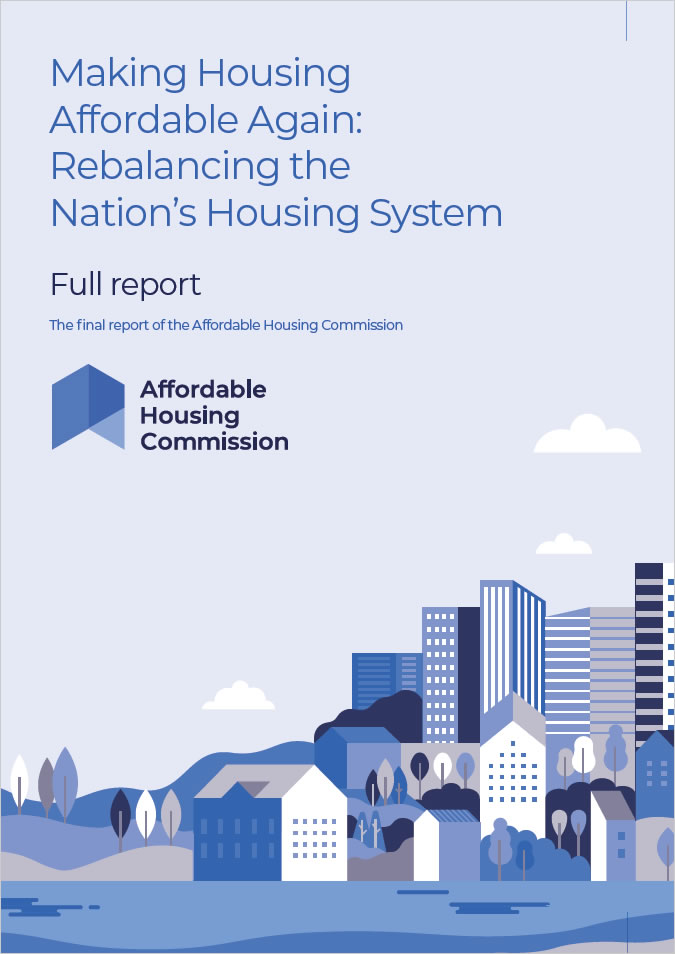Affordable Housing Funding and Financing Recommendations Report

The document titled “Affordable Housing Funding and Financing Recommendations Report” explores the critical need for enhanced funding and financing mechanisms to support affordable housing initiatives in the United States. It outlines various strategies and recommendations aimed at increasing the availability of affordable housing, particularly in urban areas facing significant housing shortages.
Overview of the Affordable Housing Crisis
The report begins by highlighting the ongoing affordable housing crisis in many U.S. cities, where rising rents and limited availability of affordable units have left millions of low- and moderate-income families struggling to find suitable housing. The document emphasizes that federal, state, and local governments must collaborate to develop innovative funding solutions to address this pressing issue.
Key Findings
- Federal Funding Shortfalls: The report identifies federal funding as a primary source for affordable housing projects, yet it notes that current allocations are insufficient to meet the growing demand. Programs like the Low-Income Housing Tax Credit (LIHTC) and Project-Based Rental Assistance (PBRA) are crucial but face limitations due to budget constraints.
- State and Local Initiatives: While federal programs are essential, state and local governments also play a vital role in funding affordable housing. The report discusses various initiatives that have been implemented at these levels, including local bonds and tax incentives aimed at stimulating affordable housing development.
- Innovative Financing Tools: The document emphasizes the need for innovative financing tools that can complement existing funding sources. This includes exploring public-private partnerships (PPPs), social impact bonds, and other mechanisms that leverage private investment to support affordable housing projects.
Recommendations for Enhancing Funding
The report provides several concrete recommendations to improve funding and financing for affordable housing:
- Increase Federal Funding: Advocating for an increase in federal funding for affordable housing is crucial. This includes expanding the LIHTC program and increasing allocations for PBRA to provide deeper affordability for low-income households.
- Support Local Funding Initiatives: Encouraging local governments to pass general obligation bonds can provide significant resources for affordable housing projects. The report suggests that cities should consider establishing ongoing funding mechanisms to ensure a steady flow of resources.
- Enhance Coordination Among Stakeholders: Improved coordination between federal, state, and local agencies, along with nonprofit organizations and private developers, is essential for maximizing the impact of available resources. The report calls for establishing collaborative frameworks that facilitate information sharing and joint initiatives.
- Expand Down Payment Assistance Programs: Increasing access to down payment assistance programs can help first-time homebuyers afford homes in high-cost areas. This support is particularly important for low- and moderate-income families who face barriers to homeownership.
- Promote Sustainable Development Practices: Encouraging sustainable building practices within affordable housing projects can lead to long-term cost savings and environmental benefits. The report recommends integrating energy efficiency measures into new developments to reduce operating costs.
- Utilize Technology for Efficiency: Leveraging technology can streamline the application process for funding and improve project management efficiency. Implementing digital platforms can help track funding allocations and project progress more effectively.
Addressing Barriers to Access
The report also addresses barriers that prevent low-income households from accessing affordable housing:
- Bureaucratic Hurdles: Complex regulations and lengthy approval processes can delay project timelines and increase costs. Simplifying these processes is essential for facilitating faster delivery of affordable housing units.
- Market Competition: In high-demand areas, competition from market-rate developments can drive up prices, making it challenging for affordable projects to compete. The report suggests implementing policies that prioritize affordable housing development in these markets.
- Public Awareness Campaigns: Increasing public awareness about available programs and resources is vital for ensuring that eligible families can access assistance. The report advocates for targeted outreach efforts to educate communities about their options.
Conclusion
In conclusion, the “Affordable Housing Funding and Financing Recommendations Report” underscores the urgent need for enhanced funding mechanisms to address the growing affordable housing crisis in the United States. By increasing federal support, promoting local initiatives, and enhancing coordination among

stakeholders, and addressing barriers to access, policymakers can create a more robust framework for delivering affordable housing solutions. The document emphasizes that a multifaceted approach is necessary to meet the diverse needs of low- and moderate-income households effectively. By implementing these recommendations, stakeholders can work collaboratively toward ensuring that all individuals have access to safe, decent, and affordable housing options, ultimately contributing to social equity and community stability across the nation.
Further reading: How to finance new forms of affordable housing in Eastern Europe
[PDF] Affordable Housing Funding and Financing Recommendations Report sfplanning
[PDF] Affordable Housing Funding (AHFP) Program Guidelines pub-hamilton.escribemeetings
